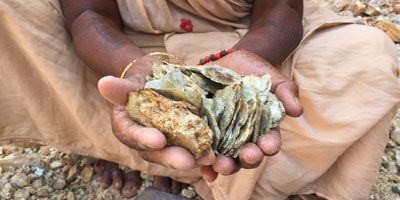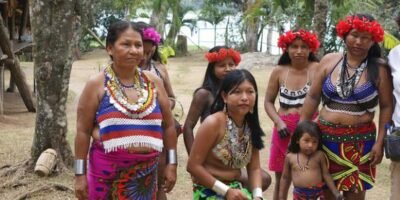How young people can prepare for a life in international development
Breaking into the field:
How to get your career in international development started
A recent graduate of political science, I studied human rights and international development. I am especially interested in how good governance is a key component of recovery and stability in post-conflict countries. But how to get a job that’s relevant to my studies and interest?
For information and advice on how to get a job in human rights and international development, I contacted some NGOs that work in these fields and the Canadian International Development Agency (CIDA).
Volunteering and interning
Volunteer experience is key to starting a career in international human rights and development, according to Bonnie Harnden, Executive Assistant at Amnesty International Canada, especially when jobs are scarce. AI Canada hires an average of two or three people a year, including fund raisers, selecting from about 200 applicants.
“You have to meet the criteria, but I will look more closely if you’ve been a really good volunteer for us,” she says. “It’s just the way the world works.”
Scott Cantin, assistant manager of media relations at CIDA, suggests not only volunteering but taking the opportunity to intern while attending school and during the summers. Before they graduate, students should be thinking about what they can do to get an advantage when they for jobs later on, Cantin says.
The CIDA International Youth Internship Program was set up to help young people gain experience and to ease the transition from education to work. Networking is an additional benefit, Cantin says. “It is a great way to learn, meet people, ensure your interests are known, and acquire experience that can help you prepare for a career.”
The International Institute for Sustainability (IISD), a public policy research group that focuses on sustainable development, also has a few internship programs that it says give graduates “the opportunity to gain tangible, entry-level overseas work experience and gives them the skills and opportunities to shape their world.” IISD interns have to be Canadian and they are usually placed internationally.
CUSO-VSO, one of North America’s largest development agencies sending people overseas to work on projects, has two types of internship programs. The first is for up to twenty recent graduates or final year students, the other for up to twenty young people who do not have experience.
The people they recruit for international work are not only from Canada and the United States, but also from the Philippines, Kenya, and Chile, among others, depending on the skills required for the country in question. CUSO-VSO’s main priorities include education, health, HIV/AIDS, environmental sustainability, and building systems of community participation and good governance.
“Becoming involved and showing that you actually have commitment and passion for something is going to be the key thing, whether that’s taking up a job that becomes available or volunteering,” Derek Evans, executive director of CUSO-VSO, said when I asked him what they look for in job applicants.
Getting a job
For the hiring and training of recent graduates CIDA has two programs: the New Development Officer Program (NDOP) and the Student Bridging Mechanism.
The NDOP is a three year period of structured assignments and training. Graduates are recruited into the program where they are exposed to work related experience in order to develop the competencies CIDA for which is looking.
The Student Bridging Mechanism is a program for entry-level positions. CIDA hires about 120 students each year, and through this program provides opportunities in fields like communications, finances, economics, international development and environment.
Most non-governmental agencies don’t provide that kind of training, however. At the IISD, experience is absolutely necessary in a potential employee, says Marlene Roy, Research & Learning Resources Manager. All positions require at least one graduate degree and some research background in a relevant field, and they only hire for two or three positions a year. “There are enough graduates out there with research experience that we’re able to look for what we want,” she said.
Getting experience so you can get the job
While it is crucial to focus on relevant subjects during your studies, these organizations also emphasize that it is also important to become involved and to demonstrate your interest in the field – you need both the relevant educational background and a history of involvement, such as through volunteer work or some internship experience. Gaining the appropriate amount of experience, especially during studies, allows you to have exposure into the field – and it can help your networking too.






